7 Experts Sharing: Where is Education Going after the Epidemic?
The sudden onset of the Covid-19 epidemic and the ensuing political situation and changes in the social environment have had a tremendous impact on education and have prompted people to rethink many educational issues. As an important element of education, education abroad has been particularly hard hit. China has a large number of international students overseas, and many students are preparing to embark on the path of studying abroad. How will study abroad change in the future?
On July 31, Global Forum for Top Principals held an online forum with the theme of "Post-Epidemic Education for Studying Abroad". In the forum, seven top experts and scholars shared their views on the topic of "Study Abroad" and gave profound thoughts on the changes of study abroad pattern after the epidemic, the value of study abroad, the purpose of study abroad, and other aspects in response to the concerns of parents and students of international students.
The contents of the forum are summarized as follows:
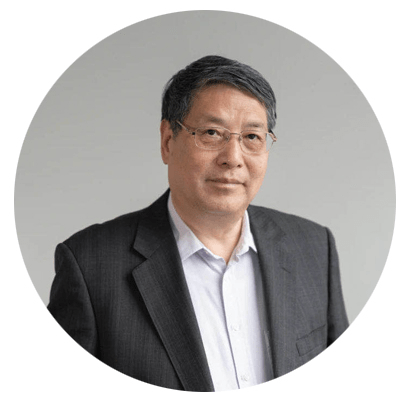
NYU Shanghai Founding President Yu Lizhong: Reflections on Post-Epidemic Education Abroad
Due to the epidemic and the U.S.-China relationship, there have been a series of problems with studying abroad. In the long run, if the relationship between China and the United States remains tense, perhaps the pattern of countries in which Chinese students choose to study abroad will change, but the general trend of studying abroad will not change dramatically.
First, there is student demand. A significant proportion of Chinese students currently choose to study abroad, and this may not change in the short term. According to a person in charge of the American Test Center in China, there are currently 200,000 to 300,000 Chinese preparing for the TOEFL and GRE. At the same time, we have a significant number of students who may have been preparing to go abroad for education since kindergarten.
Second, there is a demand for schools. There is also a demand for some foreign universities to accept Chinese students. Chinese students in overseas universities possess a big proportion. For some universities, recruiting Chinese students provides a guarantee for their operating funds and quality student sources, and plays a supporting role for the whole education system.
Third, some European and American countries, especially the world's top universities, have their own philosophy and autonomy in running schools. It is not a matter of the government saying one word and they will follow the government's way. In today's era, the concept of internationalization advocated by universities is to allow students from different cultural backgrounds to study together and interact with each other. Therefore, under any political pressure, the leaders of these universities will express their own views to defend the autonomy of the university and its ideals.
Fourth, if there is confrontation and friction in politics and economic trade between countries, the exchange of cultures and education will become more and more important.
Internationalized education is not the same as European and American education, and there is no equivalence between the two. Europe and America are the birthplaces of modern education systems. In fact, European and American schools are also exploring and transforming in the current global knowledge information era. It is worthwhile for us to learn from them. For example, Stanford University has proposed lifelong learning for students, where students can come back to their alma mater at any time to study or stop studying at any time to explore entrepreneurship. Minerva University, for example, is a new form of university that breaks the boundaries of classrooms and countries through online education.
International education actually includes a lot of concepts and methods, which brings together the essence of education from different countries, allowing children to open their horizons and see a larger world, to identify with multiculturalism, to pay more attention to global issues, and to focus on the solution of complex problems.
Internationalized education emphasizes active learning mode driven by interest, practice, cultivation of critical thinking and ability, cultivation of humanism, application of information technology, and cultivation of innovative thinking and creativity in learning methods. I think this should be a good summary of international education and the value of studying abroad.
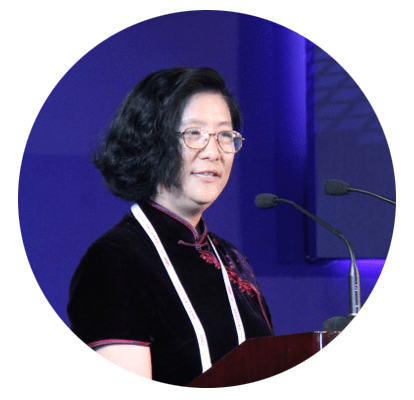
Zhang Yandong, Executive Editor-in-Chief of “Finance” Magazine and President of “Financial Minds”:
Responding to Changes with Constancy
The topic of education abroad is closely related to the fate of the country, the fate of the family, and the fate of the individual.
From the present point of view, the United States has set China as a strategic rival, the epidemic abroad is still intensifying, and the environment for studying abroad is unfavorable to Chinese students.
This epidemic has also changed the judgment of many parents towards developed countries. The U.S. system and culture are different from that of China, and the number of cases in the U.S. is increasing, but Westerners are not nervous and not afraid.
In addition, the destination countries of Chinese students are also changing in diversity, and countries like Japan and Singapore are becoming choices for more and more international students.
The changing times will affect the choices of parents and children on the matter of studying abroad. In light of these changes, I will talk about four points.
Firstly, studying abroad is also an important step to improve oneself, to broaden one's horizons, and to cultivate one's rational and professional thinking.
Growing up in different cultures and comparisons will definitely lay a more solid foundation for your future.
Studying abroad does not mean throwing away everything in China, but rather bringing the best parts of China, while absorbing and integrating them in Western learning.
Currently, schools in developed countries are trying to take effective measures to reduce the negative impact of the spread of the epidemic on the education of international students, such as relaxing admission requirements and holding teaching sessions in China.
I would suggest that it is very important for students who are applying to schools to screen their destinations. Students who are studying abroad also need to plan their employment in advance. Currently, overseas employment is relatively difficult compared to the past. However, in the long run, I think this situation will change gradually.
Secondly, international students should not panic too much or change their plans to study abroad in a hurry.
International transportation has been temporarily stopped due to the epidemic, or there are very few flights, which will be gradually restored as the epidemic changes. Students who are planning to go abroad can consider using this time to improve their abilities and enrich their resume. The "constant" is the ability to improve one's own abilities, which cannot be changed by others. That's why it is essential to improve your abilities in all aspects.
Thirdly, for parents of international students, it is important to change their mindset on the one hand, and to develop their children's comprehensive, resilient and problem-solving abilities on the other.
If parents have planned for their children to study abroad and have the foresight or financial strength, they will not change their children's mindset easily, but they may change their children's mindset when they are younger.
In addition to standardized tests, I think parents, schools, and society should pay more attention to cultivating children's tolerance, realistic character, independent living and problem-solving skills, as well as self-motivation. In fact, the U.S. places more emphasis on self-motivation and independence so that children can better cope with the uncertainty of the future.
Fourthly, as a veteran international student, I would like to tell the new international students that their current experiences are treasure of life and they should be able to integrate into the western society.
I have studied and lived in the United States for so many years, but I have never felt that people discriminate against me because I have never thought in that way when I encounter problems. However, American culture dictates that Americans are not as close as Chinese people in their relationships, so it is important to understand the culture of different countries.
America is still a very tolerant society, and the people are relatively simple. How to make our voices heard abroad, how to make people from different cultures understand us, and how to better lobby in a language and way that is acceptable to foreigners, I think, are skills that international students must develop today.
The complexity and uncertainty of the international environment will not change just because the epidemic is over; it may even become more tense. Both international students and parents need to be more independent, comprehensive and calm in their judgment. At the same time, we should improve our own strengths with a constant mindset and improve ourselves to a new level.
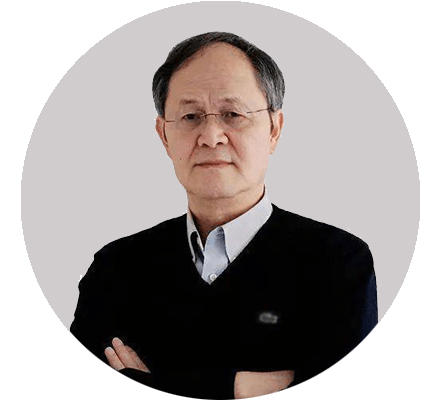
Huang Quan-Yu, the renowned travel educator and professor of education at the University of Miami (Oxford):
Is the purpose of studying abroad to "learn from the foreigners to compete with them"?
In the information age where science is changing rapidly, studying abroad is not only about learning scientific knowledge, but also about cultivating the three elements of science: the purpose of science (to discover laws), the spirit of science (questioning, independence, uniqueness), and the method of science (logical, quantitative, and empirical). These three elements are a trinity.
What do you need to learn to study abroad?
I. Embrace end-point thinking
The end point mindset dictates that American universities are structured as “the width enters is strict”. Victory or failure can only be judged at the finish line. In fact, graduation is only the "gas station" of life. The real terminal thinking is to invest strategically in the competition in the workplace, social practice and self-realization after graduation. Bill Gates, a Harvard dropout, has extended his terminal thinking to Microsoft.
U.S. universities have entry barriers, but whether they are top-tier or average, getting in doesn't necessarily mean getting out. There are countless assignments, countless projects to study and research, long reading lists, and thick study materials on ....... Many graduate students from Tsinghua University and Peking University have a hard time in U.S. universities.
II. Change the candidates into students
Don't fall into the pit of "test" when applying for study abroad. When you go to study abroad, you must realize the change from "examinee" to "student".
The essential difference between test-oriented education and quality education is the difference of two words: "test" students and "study" students. In 1996, there were 545 students with perfect SAT scores in the U.S., 365 of whom applied to Harvard, but 165 applied to the university. In 1996, there were 545 students with perfect SAT scores in the United States. 365 of them applied to Harvard, but 165 of them were rejected, because the students who were rejected had no living qualities behind their test scores.
III. To creatively "get the fish"
Study abroad is about thinking out of the box. Learning knowledge is just "knowing the answers" and exploring innovation is "asking questions". Study abroad must reflect on the difference between "knowing the answers" and "asking the questions".
In short, the more knowledge you have, the more you want to use the knowledge you have; the less knowledge you have, the more you want to explore. Therefore, learning knowledge is important, but more important than learning knowledge is to break the shackles of knowledge to explore the problem, to learn scientific thinking, to creatively "get the fish".
IV. Cultivate Critical Thinking
Many people think that critical thinking is to be right in every way and to sing against everything. In fact, the key to critical thinking is independent thinking. As long as you think independently and rationally, even if you accept everything, you are still thinking critically.
International students should express their independent and critical thinking not simply by saying NO and arguing with professors in a blushing manner, but by expressing their uniqueness intelligently, rationally, favorably and in a disciplined manner.
V. Cultivate the spirit of self-reliance and self-improvement.
The United States was founded more than 200 years ago and has produced many rich people, but the phenomenon of "no more than three generations rich" is rare. Many international students have beautiful resumes, but they can't find a job because they lack part-time job experience. Nowadays, many international students give people the impression that they are not self-reliant and do not care about self-improvement. In fact, part-time job is not a matter of money, but an expression of the spirit of self-reliance and the best opportunity to make American friends, get in touch with American society, and understand American culture.
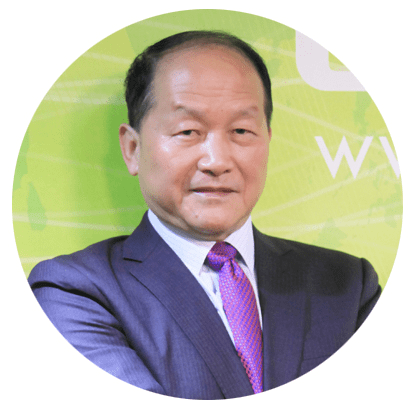
Zhou Zhixing, President of the U.S.-China New Perspectives Foundation: International Education Must Advance with
the Times
In 1847, the first Chinese student, Rong Hong, set sail from Huangpu Harbor in the Pearl River Delta to study in the United States. In 1872, the earliest official study abroad movement in China began, with 120 young children coming to the U.S. This was the biggest achievement of Rong Hong in the history of cultural exchange between China and other countries.
During that period, many outstanding international students emerged. From the point of view of science and technology, they included not only Zhan Tianyou, but also famous physicists such as Zhou Peiyuan, Wu Youxun, and Ye Qisun, chemists such as Yang Shixian and Hou Debang, biologists such as Qian Chongshu, architects such as Mao Yisheng and Liang Sicheng, and meteorologist such as Zhu Kezhen. With the knowledge they gained in America, they created new milestones in Chinese science and technology and changed their own destiny.
In the 1920s, international students, represented by Zhou Enlai, Liu Shaoqi and Deng Xiaoping, went abroad to learn more skills to change China and the world.
After the founding of New China in 1949, Premier Zhou Enlai and Foreign Minister Chen Yi decided to establish a foreign language school to cultivate high-level foreign language talents to meet the needs of China's rapid development and expanding international exchanges. Later, foreign language schools were established in Shanghai, Tianjin, Nanjing, Hangzhou, Wuhan, and Chengdu.
These stages in the development of international education in China are worth summarizing. At present, there are many problems in international education, the first one is the tension between China and the United States, which is very unfavorable to foreign students, and this situation may lead other countries to follow suit.
However, I think that although there are problems in the exchange between China and the United States now, they will be gradually recovered. The first thing that should be recovered is the exchange of humanities education.
I am also a parent of an international student, and my son is now studying at New York University. I find that many parents have several misconceptions about their children's academic performance, etc.
The first misconception: academic performance is the most important thing. Chinese parents tend to pay a lot of attention to SAT scores and want their children to score as high as possible. In American schools, they look at grades, but they also focus on practices, such as what public service activities they have participated in, what they have accomplished in public service, and so on. Chinese parents tend to ignore these aspects.
The second misconception: they don't trust their children's life and studies. Because the children are in the U.S. and the parents are in China, they have to be concerned about their children's food, clothing, housing and transportation, as well as their academic performance. Usually, they cannot do anything about it. What should we do at this time? It's about developing strong self-care skills in children.
The third misconception: parents want their children to be an all-around great person. Parents want their children to be good in sports, in studies, in character, and in ability, which is very difficult to achieve. I think the most important is to be a complete person in terms of personality. This is one of the purposes that international education wants to promote.
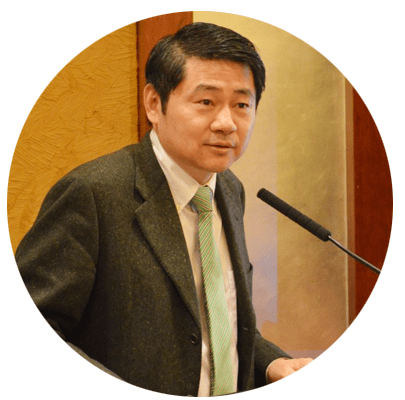
Wang Huiyao, Founder and Chairman of Globalization Think Tank, State Council Councilor:
International Schools in China and Global Development
Developed countries in Europe and the United States have been using international schools as part of their national foreign policy, as well as to develop their economies and attract talent, and to train global talent to serve their countries' development.
How can China's international schools go global better? For example, the "China Education Modernization 2035" issued by the State Council puts forward ten strategic tasks for the future of education, including creating a new pattern of opening up education to the outside world and accelerating the construction of overseas international schools with Chinese characteristics, which is a very good guide.
So, how can we provide overseas Chinese citizens, overseas Chinese, and students from other countries with the convenience of learning Chinese culture and exposure to China's international education system? There is much more we can do in this area, and I have some suggestions.
1) The most important thing for Chinese schools to do is to consider a transfer system that facilitates the schooling and registration of children of Chinese citizens abroad. In other words, after attending a Chinese international school, can they continue to attend an English-speaking university, or can they return to their home country to continue their higher education in China?
2) The construction of overseas Chinese international schools should have Chinese characteristics and international vision, conform to the Chinese curriculum norms and take into account the trends of international curriculum.
3) Coordinate Chinese enterprises should go global, Chinese culture should go global, Chinese tourism should go global and Chinese education should go global. Private education and public schools need to be supported to go abroad and establish Chinese international schools.
4) In addition to going out at the university level, more attention should be paid to primary and secondary education, including kindergarten education.
5) The characteristics of the current international education, the evaluation system, and the future development direction of the school should be studied. In the future, we need to export the Chinese education standard system.
6) Cultivate teachers. The biggest challenge for the development of international education in China is the lack of good teachers, so we need to cultivate international teachers who are competent in bilingual education. Internationalization has become a global trend in the development of education. China should learn from the development experience of other countries, strengthen the study of global education, open international schools with Chinese characteristics, and further promote the development of international education.

Li Lin, Founder and CEO of CUSSA, Chairman of HanGuang Education: International Students Are Not Spectators
Over the past decade, the number of Chinese students studying abroad has grown at a compound annual growth rate of 13.9%, with the total number of students studying abroad reaching 662,100 in 2018 and nearly 710,000 in 2019. The number of international students coming to the U.S. has long accounted for more than 50% of the total number of Chinese students studying abroad. As a result, the growth of international students coming to the U.S. will directly affect the overall growth rate of international students.
The current epidemic prevention and control in the U.S. is not satisfactory, and I personally predict that the number of students studying abroad may drop slightly this year. However, I think the general trend of studying abroad will not change in the short term. There are also opportunities for study abroad education in the era of epidemic.
For students with good family conditions and excellent grades, this year is a great opportunity to overtake the curve and hit the top schools. Because of the epidemic, the number of international students applying to elite U.S. schools will be greatly reduced, and this year many elite schools have lowered or even eliminated the weighting and assessment of standardized scores, making it competitive for students who have started preparing to study abroad early and who have a strong overall background and ability.
For families who are not financially advantaged, but want to obtain an overseas diploma, studying abroad at such a special time can be a very valuable investment. Many U.S. schools are offering online courses during the regular semester this year. Students can take basic general education courses and relatively less important elective courses at home for a relatively low number of credits, which will allow students to complete their overseas studies in time to earn an overseas diploma on the one hand, save a lot of money on the other hand.
According to the statistics of the U.S. Department of Education from 2019-2020, the average annual tuition of public universities in the U.S. is about $27,000, while the annual tuition of private universities is $37,000. If we rank the top 50 universities in U.S. News, the tuition fee for public universities is almost $34,000 and for private universities is up to $55,000.
In addition, for schools, educational institutions, educational investors, and practitioners in the education abroad industry, we will probably experience a short-term decline in the overall student population, but I think there are both challenges and opportunities that will allow us to continue to innovate in education, technology, ideas, and models to prove our value.
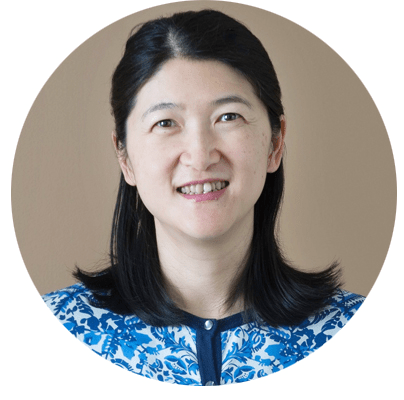
Christine Lin, Founder of the Cambridge Association of American High Schools:
Opportunities and Challenges of Studying in the U.S. as a Result of the Epidemic
The sudden epidemic has disrupted the rhythm of our lives and studies, and there are both opportunities and challenges in studying in the United States.
Now let's use SWOT to analyze the advantages and disadvantages of studying in the US.
S (strengths) : The quality of higher education in the United States is second to none in the world. There are more than 50 U.S. universities in the World University 100, more than all other countries in the world combined. Due to the epidemic, fewer people are expected to apply to U.S. schools and jobs in 2020, which will create more opportunities and arguably increase the value of diplomas.
According to the National Education Data Center, the top universities in the U.S., such as MIT, Harvard, and Princeton, invest up to $165,000 per student per year. In the long run, some of the effects will eventually be recovered as the epidemic disappears.
W (weaknesses): Under the epidemic, international students are under more pressure in terms of personal protection, living expenses, etc. In the long run, some of the effects will eventually be recovered. In addition, online learning is more difficult and there are fewer opportunities for face-to-face interaction between teachers and students. International students will have fewer opportunities to integrate into American culture, which will greatly reduce the convenience of living, studying and working in the US.
O (opportunities): As an immigrant country, the United States is open, which is conducive to international students' integration as soon as possible, and the cultural atmosphere of different countries can help broaden their thinking and develop international vision. At the same time, most American schools nowadays adopt online or offline teaching methods, and the technical conditions for online learning and working are also very mature.
T (threats): The current epidemic and political environment in the U.S. is complex, and policies on study abroad and immigration are changing and tightening. For example, government leaders have become "unfriendly" to top talent from overseas, and the White House has increased restrictions on Chinese scientists. At the same time, high tuition fees and the adoption of online teaching methods have caused families to worry about the value of online diplomas.
In today's dynamic political and social environment, there are many aspects that we cannot control, but we can control ourselves. In unique circumstances, we need to constantly improve our soft skills, such as emotional intelligence, social skills, stress management, goal management, cultural awareness, etc., to understand our self-awareness and stay curious about the world.
Contact Us
Mainland China:027 - 87319658
USA: 6848 Caine Rd, Columbus, OH, 43235, USA




 国内客服
国内客服 北美客服
北美客服